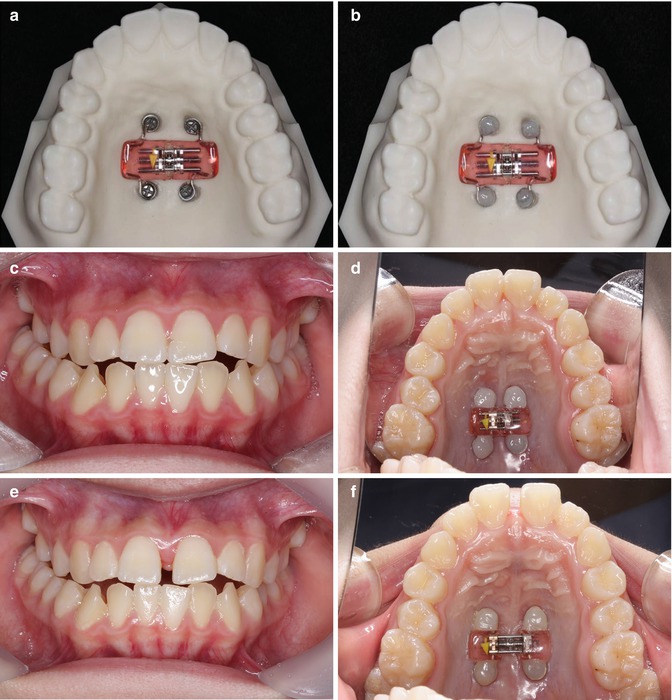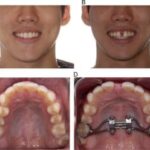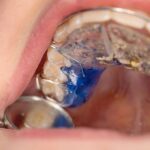Before the surgery, individuals with a narrow palate may experience a range of symptoms, including difficulty breathing, snoring, sleep apnea, and speech problems. These issues can significantly impact their quality of life and overall well-being. Palate expansion surgery offers a solution by widening the upper jaw and creating more space for the teeth and soft tissues. This results in improved nasal airflow, reduced snoring, better sleep quality, and enhanced speech clarity.
The upper jaw is made up of two halves that fuse together during childhood. However, in some cases, the fusion is incomplete, resulting in a narrow palate. A narrow palate can cause problems such as crowded teeth, crossbite, impacted teeth, breathing difficulties, and speech issues.
During palate expansion surgery, the surgeon creates small incisions in the palate and inserts a device called a palatal expander. This device applies gentle pressure to the palate, gradually widening it over time. The expander may be adjusted periodically to ensure proper expansion.
Palate expansion surgery is typically performed under general anesthesia, and the procedure itself usually takes about an hour. After the surgery, patients may experience some discomfort and swelling, which can be managed with pain medication and cold compresses.
What is Palate Expansion Surgery?
How is Palate Expansion Surgery Performed?
During palate expansion surgery, the surgeon will make small incisions in the upper jawbone and insert a special device called a palatal expander. This device is designed to gradually widen the upper jaw over a period of time. The expander applies gentle pressure on the bones of the palate, causing them to separate and create additional space.
The palatal expander is usually adjusted by the patient or orthodontist using a special key. This allows for controlled and gradual expansion of the upper jaw. The process typically takes several months to complete, depending on the individual case.
Benefits of Palate Expansion Surgery
Palate expansion surgery offers several benefits for individuals with narrow dental arches or misaligned jaws:
- Improved dental alignment: By widening the upper jaw, palate expansion surgery can create more space for the teeth to align properly. This can help improve the bite and overall dental aesthetics.
- Reduced crowding: Palate expansion can help alleviate crowding of the teeth by creating additional space in the dental arch.
- Treatment of crossbite: Crossbite occurs when the upper teeth bite inside the lower teeth. Palate expansion surgery can correct this issue by widening the upper jaw and aligning the bite.
- Improved breathing and airway function: In some cases, palate expansion surgery can help improve breathing and airway function by increasing the size of the nasal passages.
Benefits of Palate Expansion Surgery
1. Corrects Dental and Skeletal Issues
Palate expansion surgery is highly effective in correcting dental and skeletal issues caused by a narrow palate. By widening the upper jaw, this procedure creates more space for the teeth to align properly and reduces crowding. It can also help to correct crossbites, underbites, and overbites, improving the overall bite and alignment of the teeth.
2. Improves Breathing
A narrow palate can contribute to breathing problems, such as snoring and sleep apnea. Palate expansion surgery can help to widen the airway and improve airflow, reducing the frequency and severity of these breathing issues. By improving breathing, this procedure can also lead to better sleep quality and overall health.
3. Enhances Facial Aesthetics
Palate expansion surgery can have a significant impact on facial aesthetics. By widening the upper jaw, it can improve the symmetry and balance of the face, giving it a more harmonious appearance. This procedure can also help to correct a sunken or narrow-looking face, creating a fuller and more youthful facial profile.
4. Improves Speech
A narrow palate can affect speech by causing certain sounds to be distorted or difficult to pronounce. Palate expansion surgery can help to improve speech clarity and articulation by creating more space in the oral cavity. This can be particularly beneficial for individuals with speech impediments or those who struggle with certain sounds.
5. Enhances Chewing and Digestion
A narrow palate can lead to difficulties in chewing and proper digestion. Palate expansion surgery can help to create a more spacious and functional oral cavity, allowing for improved chewing efficiency and better digestion. This can lead to better overall nutrition and digestive health.
Before and After Results: What to Expect
Before the surgery, the patient’s palate is narrow, which can cause a variety of issues such as difficulty breathing, speech problems, and dental crowding. The goal of palate expansion surgery is to widen the palate, creating more space in the oral cavity and improving overall function.
After the surgery, patients can expect to see a noticeable difference in their palate. The palate will be wider, allowing for better airflow and improved breathing. This can lead to a reduction in snoring, sleep apnea, and other breathing-related issues.
In addition to the functional improvements, palate expansion surgery can also have aesthetic benefits. The widened palate can help create a more symmetrical and balanced facial appearance, enhancing the overall harmony of the face.
After the surgery, it is crucial to follow the post-operative instructions provided by the surgeon to ensure proper healing and minimize the risk of complications. This may include taking prescribed medications, avoiding certain foods, and maintaining good oral hygiene.
Recovery and Aftercare
| Recovery Period | |
|---|---|
| Pain Management | |
| Dietary Restrictions | Following palate expansion surgery, you may be advised to follow a soft or liquid diet for a certain period of time. This is to ensure that the newly expanded palate is not put under excessive pressure or strain. Your surgeon will provide specific dietary guidelines and recommendations. |
| Oral Hygiene | |
| Follow-up Appointments | |
| Activity Restrictions | |
| Long-term Care |
Choosing a Surgeon for Palate Expansion Surgery
Here are some factors to consider when choosing a surgeon for palate expansion surgery:
- Experience: Look for a surgeon who has extensive experience in performing palate expansion surgeries. They should have a proven track record of successful procedures and satisfied patients.
- Specialization: Make sure the surgeon you choose specializes in palate expansion surgery. This ensures that they have the specific knowledge and expertise required for this complex procedure.
- Credentials: Check the surgeon’s credentials and certifications. They should be board-certified and have the necessary qualifications to perform palate expansion surgery.
- Reviews and testimonials: Read reviews and testimonials from previous patients to get an idea of the surgeon’s reputation and the quality of their work. Look for positive feedback and successful outcomes.
- Facility and equipment: Visit the surgeon’s facility and ensure that it is clean, modern, and well-equipped. The facility should meet all safety standards and have the necessary equipment for performing palate expansion surgery.
By considering these factors and doing your due diligence, you can find a skilled and experienced surgeon who will provide you with the best possible care during your palate expansion surgery.

Dr. Fidel Cann: Esteemed orthodontist with a lifelong dedication to enhancing smiles and oral health. Pioneering expertise, compassionate care.





